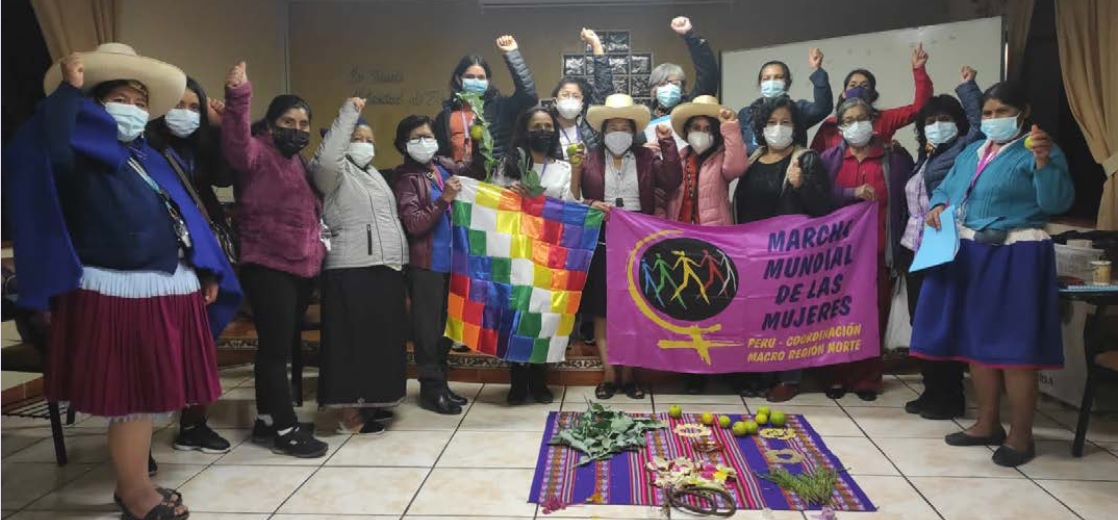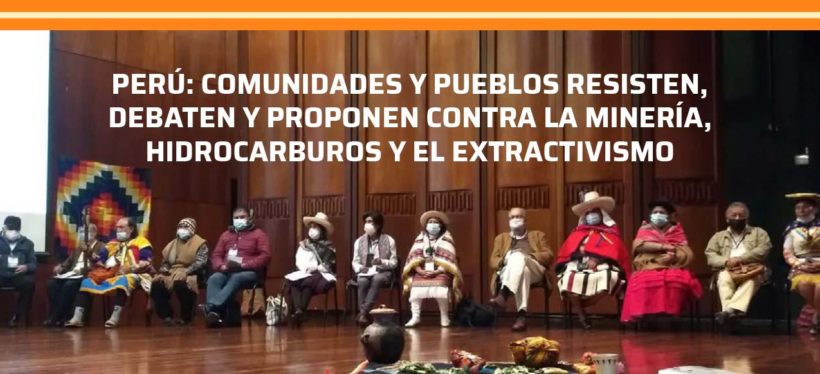Under the slogan “Communities and peoples resist, debate and propose against mining, hydrocarbons and extractivism”, the National Congress of peasant communities affected by this aggressive industry took place.
During the days that took place between 24 and 26 September, the leaders who convened the Congress debated
and formulated proposals for laws that integrate the cosmovision of the peoples, the demands of the communities and guarantee women’s rights.
The debates revolved around 9 thematic axes, with the accompaniment of brothers and sisters from Bolivia, Ecuador and Colombia, to contribute from the experience of their respective countries.
Of particular note was the participation of Sister Blanquita Chancosa, a historic indigenous leader of Kichwa-Otavalo nationality and a regional reference in the defence of women’s rights, particularly in Ecuador.
Proposals prioritised by the communities
– For change from the bottom up.
– To formulate and implement a new law to regulate and sanction mining, to be constructed with the people and to respect the right to decide of our communities.
– We are committed to a new constituent assembly that is plurinational, parity-based, sovereign, ecological and diverse.
– To ensure the good life of women, our peoples in harmony with nature, where the new rules of the game in our country are created from the grassroots with feminist popular power, it will be the diverse women and the peoples who lead these changes.
– Demanding rights that allow us to guarantee the Allin Kawsay,
a Quechua word of Andean wisdom that means “Good Living”, life in harmony with Mother Nature, with others and with oneself. According to this wisdom of the Andean and Amazonian peoples, everything has life and there is an interdependence between all living beings. It is a wisdom of care, of nurturing life in all its dimensions.
– From the congress of communities resisting the impact of hydrocarbons and mining, to re-evaluate the wisdom of good living as a response to the increase of violence in the personal, social and structural spheres, to the accelerated destruction of the environment, to the challenges of globalisation and the difficult coexistence between peoples and cultures.
peoples and cultures.

Women in struggle
Lourdes Contreras comments on what the process organised in recent days means for women’s collectives:
“For the diverse native, indigenous, peasant, rural, young lesbian women who defend the body, land, territory and life, organising as a people is a way of life, territory and life, to organise as peasant peoples and communities affected by mining and hydrocarbons is to generate popular power to promote profound changes in our territories, the weaving of the web of life that we will be developing and that we will be making concrete through this congress.
The weaving of the web of life that we will be weaving and that we will be making concrete through this National Congress of Peasant Communities Affected by Mining, Hydrocarbons and Extractivism will lead us towards a good life for women, our peoples and nature.
On the other hand, we are also aware that as women we still have a long way to go to achieve complementarity and parity within our organisations, that women’s leadership is still at a disadvantage compared to that of our brothers and sisters, and that violence and violence against women are still a problem and that violence against women’s bodies as a primary territory is still not recognised, even by women themselves.
But of course, as our sisters of the World March of Women Macro North Region say, by continuing the stories and wisdom of our ancestors we will continue to break the chains, and for this to happen, having autonomous spaces as women to dialogue, reflect, question ourselves and build popular feminist community power from our different territories is the basis”.










